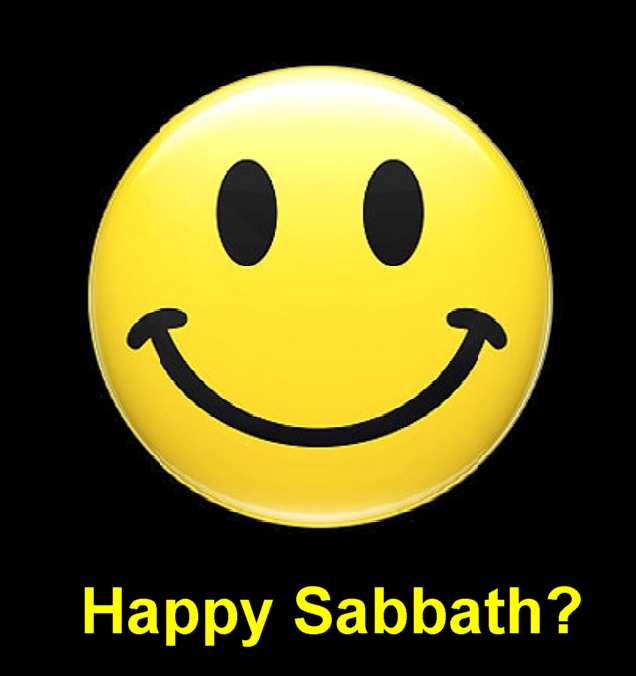Questions (for SDA Members)
Here you will find questions pertaining to Seventh Day Adventist
issues. Adventist theology needs to be questioned, and if one is really in the
"truth", then one should not fear such questions. Questions were used by our
Savior to teach men. Questions were also used by the Serpent in the
Garden of Eden, to persuade man to sin and thereby fall. Questions used
by the Serpent, had the clear implication that God was somehow evil,
that He was denying man something essential and good and necessary.
These are root of his arguments: that God is not good, He is somehow
evil and not truthful, he is unjust, he is weak and likely needs help,
he is like fallen man, He does not mean what He says.
Questions by the Messiah, assumed that God is Holy, Eternal, Sovereign, True and Self-Existent and Self-Sufficient, and Just, and that God's Word is true and eternal. God does not need our help in anything (Acts 17:25). So our purpose here is to ask questions that will open the eyes of the blind to see Jesus in all His Glory.
1. How could EGW be a true prophet of God during the time when she did most of her writing when she thought that the Lord Jesus Christ was not eternal Deity but an elevated angelic creation of the Father? Does being wrong about who the Lord Jesus is, make one a false prophet or simply mistaken or just excusably uninformed?
2. If Jesus is really the Arch Angel Michael, then why is the one whom Isaiah calls “mighty God” and “Father of eternity” (Isaiah 9:6), both unwilling and unable to rebuke the Devil whom He created and bring judgment (Gk. Krisis) against him. (Jude 9) Was not this Michael the same Lord Jesus to whom was assigned the judgment of “the Devil and his angels.” Did not the real Jesus in John 5:27 receive a commission from the Father to execute judgment? (Gk. Krisis) Since “ Jesus Christ is Lord, to the glory of God the Father”, why was it necessary to say, “The Lord rebuke you”, if He indeed was the Lord? Was the answer found in the fact that Michael was not the Lord Christ, but simply a created being who recognized and deferred to the authority of God over His own creation? (Zechariah 3:2) Even Peter wrote in the parallel passage in 2 Peter 2:11, that angels (as a group, of whom Michael is included), “which are greater in power and might, bring not railing accusation against them before the Lord.” Michael is included in the group of created beings called angels, who were unable and unwilling to confront Satan directly. The Lord Jesus clearly says the Satan , to whom He refers as the “prince of this world”, has been judged because of His work on the cross. (John 16:11) Why , in all of Jesus encounters with the demons and Satan himself where He has absolute power and authority, was He powerless, unable and unwilling as Michael the Archangel , to contend over the body of Moses? Is it possible that Michael was not really the pre-incarnate Christ as the Adventists claim? In Daniel 10:13, Michael is described as “one of the leading princes.” In all of Scripture, is The Lord Jesus ever described as being one of a group, or even the leader of a group, or rather as “The King of Kings, and Lord of Lords?”
3. Is the Lord Jesus Christ of Ellen G. White the same one whom God says has always been true undiminished deity by nature and never an angel? Ellen G. White says the Lord Jesus Christ was an angel whom God raised to equality with Himself. Whom are we to believe? Do we believe White as the official interpreter of Scripture for the SDAs, or do we believe the plain teaching of God's Word? Your eternal destiny depends on having the right Lord Jesus, and hence the right Gospel.
4. If I put myself under the Sabbath commandment, which is one of the Ten Commandments, in order to be saved or justified before God, will I be putting myself under the Law, which Paul described as the "letter which kills" (2Cor3:6) and the "ministry of death engraved on tablets of stone" (2Cor.3:7) and the "power of sin" (1Cor.15:56, Rom.7:9) and under the "curse of the Law" (Gal.3:10)? Did not Paul consider the commandment "thou shall not covet" as part of the Law in Romans 7:7? If Paul then considered "thou shall not covet" as part of the Law, then is not the commandment "Keep the Sabbath Holy" also part of the same Law? And if I put myself under one part of the Law, am I not obligated to keep the whole Law, and am I not separating myself from Christ and becoming an adulteress according to Scripture? (Rom.7:1-2, Gal.5:3) And does not Scripture also tell us, "For if a law had been given that was able to impart life, then righteousness would certainly have come by the Law" (Gal.3:21b).
More Questions will be posted soon. Thank you for your patience.
An examination of the "Investigative Judgment" doctrine by Dale Ratzlaff
Investigative Judgment DoctrineDr. Talbot--An Evangelical Theologian evaluates Adventism from a Biblical Perspective.
Is Adventism Evangelical?The struggle of a life-long Adventist Pastor --Greg Taylor-- as he decides to leave Adventism.
The New CovenantIf I am saved by God, how can I lose eternal life?
1844 Probation and Satan as Scape Goat Doctrine -- Cultic Doctrine (Video Link)
